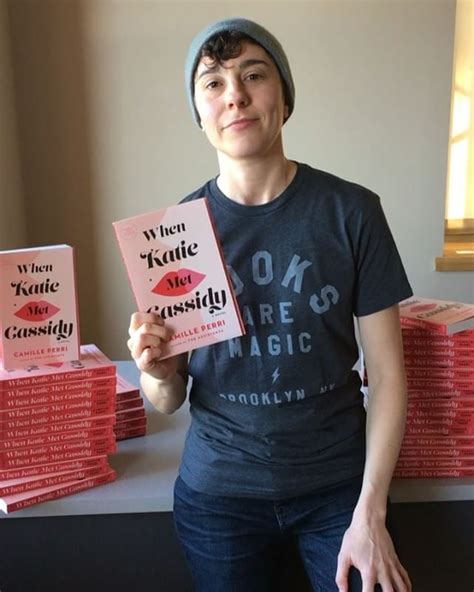A Quote by Elizabeth George
I have to know the killer, the victim and the motive when I begin. Then I start to create the characters and see how the novel takes shape based on what these people are like.
Related Quotes
I always think I know the way a novel will go. I write maps on oversized art pads like the kind I carried around in college when I was earnest about drawing. I need to have some idea of the shape of the novel, where its headed, so that I can proceed with confidence. But the truth is my characters start doing and saying things I don't expect.
Any time I put together a story collection, I don't know what it's going to look like overall - or even what the title story is going to be. Over time, I end up with a dozen or so stories, and I start to see a shape to them, how they fit together, and then I write stories that complement or extend that shape.
I think at some level, it's just alchemy that we, as writers, can't explain when we write the characters. I don't set out to create the characters - they're not, to me, collections of quirks that I can put together. I discover the characters, instead. I usually go through a standard set of interview questions with the character in the beginning and ask the vital stuff: What's important to you? What do you love? Hate? Fear? .. and then I know where to start. But the characters just grow on their own, at a certain point. And start surprising me.
If you get the characters right you've done sometimes nearly half the work. I sometimes find I get the characters right then the characters will often help me write the book - not what they look like that's not very important - what people look like is not about their character. You have to describe the shape they leave in the world, how they react to things, what effect they have on people and you do that by telling their story.
I don't know how to write a novel in the world of cellphones. I don't know how to write a novel in the world of Google, in which all factual information is available to all characters. So I have to stand on my head to contrive a plot in which the characters lose their cellphone and are separated from technology.
Once I start work on a project, I don’t stop and I don’t slow down unless I absolutely have to. If I don’t write every day, the characters begin to stale off in my mind – they begin to seem like characters instead of real people. The tale’s narrative cutting edge starts to rust and I begin to lose my hold on the story’s plot and pace. Worst of all, the excitement of spinning something new begins to fade. The work starts to feel like work, and for most writers that is the smooch of death.
If a novel is written in a certain language with certain characters from a particular community and the story is very good or illuminating, then that work is translated into the language of another community - then they begin to see through their language that the problems described there are the same as the problems they are having. They can identify with characters from another language group.
The way I see the job, my definition of it, is to create characters to the best of your ability and then fit into what's trying to be accomplished in the general framework of the film. I think that's whether you're doing this- even if you're doing musical theater. That's what I think an actors job is. I don't know. I like to think what an actors job is is to create characters.
I imagine that when I am creating a song or a project or an album or putting some clothing together or cooking a meal, whatever it is, I don't really have a recipe. The fun part is to throw that big piece of clay in the middle of the table as hard as I can, and whatever shape it takes, that's what shape it takes, and then I start to carve away.
A novel is not an allegory.... It is the sensual experience of another world. If you don't enter that world, hold your breath with the characters and become involved in their destiny, you won't be able to empathize, and empathy is at the heart of the novel. This is how you read a novel: you inhale the experience. So start breathing.

































